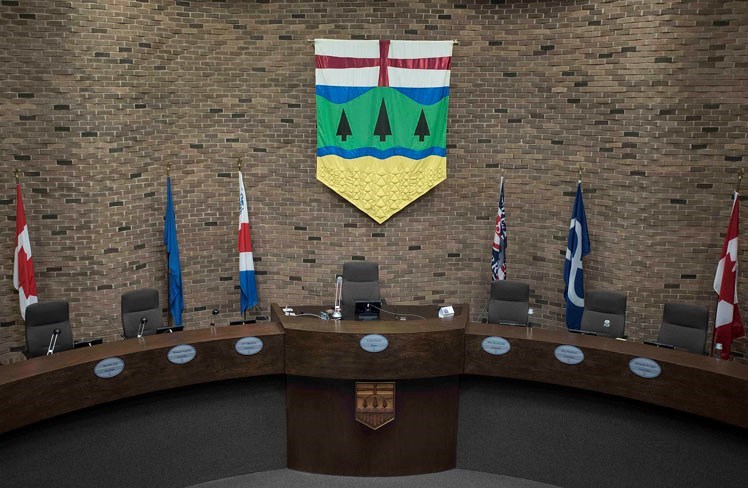Coun. Natalie Joly says she wants to know how much prolonged council and committee meetings cost St. Albert taxpayers.
Concerned that residents are footing the bill for long, unfocused discussions, Joly has asked administration to provide an estimated cost per hour for staff time during meetings.
The inquiry, submitted as a Council Information Request (IR) on April 4, will be answered through a report to council within 30 days.
“I requested this information because I want an understanding of the financial impact of delving into matters at formal meetings that may be administrative, or may be for the personal interest of member(s) of council rather than governance-focused,” Joly said in an email to the Gazette. “My IR is reflective of Mayor (Cathy) Heron's comment (On April 4, during the Millennium Park workshop) that she's ‘frustrated because this has gone completely off the rails.’”
“I'm also frustrated and want to understand the impact of getting into the weeds.”
Joly said she hopes the IR report will provide impetus for council and committees to focus on “governance and high-level policy issues.”
“When lines of questioning or discussion is not required to influence outcomes, I am concerned that it is driving up costs for residents of St. Albert,” she said.
In 2023 so far, three of the 10 council and committee meetings have run longer than three hours, not including breaks. The Feb. 14 committee of the whole meeting that featured council's first discussion of the proposed municipal naming policy update lasted nearly seven hours.
In an interview, Coun. Ken MacKay said he understood his colleague's concern, but was doubtful it could be avoided.
“I'm not so much sure that it's in the weeds as much as if it's council trying to get the best information to come back with the best decision,” MacKay said.
“As the (complexity of) information increases, I think you need more and more information,” he said, giving the example of council's recent off-site levy bylaw update.
“There's some pros and cons with any process ... it's actually quite nice to have the actual author of the report in the room, the technical expertise to provide the information, so I don't know whether or not we can ever get away with without that.”
Likewise, Coun. Shelley Biermanski said although she's mindful of the costs of staff time, she thinks council and committee meetings are the right place for mayor and council to ask all necessary questions of administration.
“That is the way to make proper decisions, and if we just go to council and just approve everything that administration is doing to cut down on time, then we really don't need government,” Biermanski said.
“I know that some people would look at it like we're there for governance, but then we're just rubber stamping things rather than providing the best possible results for the citizens that we represent.”
Biermanski also said outside of meetings, council is only able to ask questions of Chief Administrative Officer Bill Fletcher, who is technically council's sole employee.
“It's not like we're going to email somebody from some department; we would never do that, that would certainly be affecting their day-to-day workload more than a council meeting,” she said.




